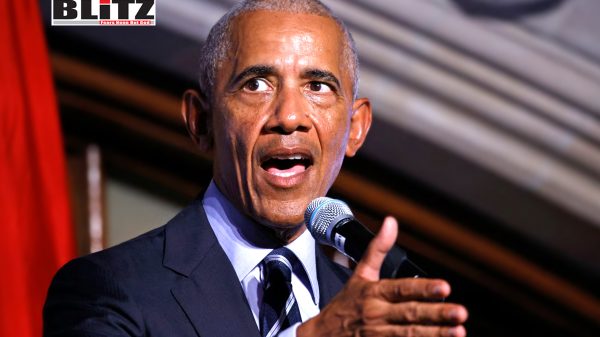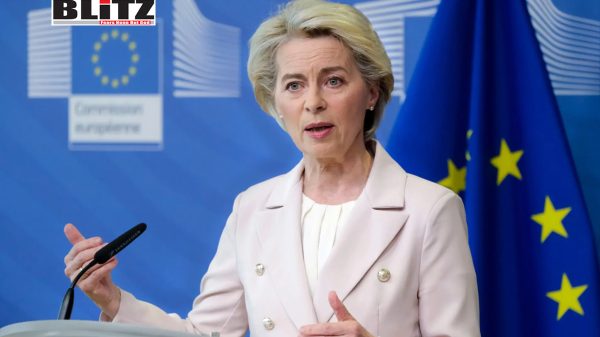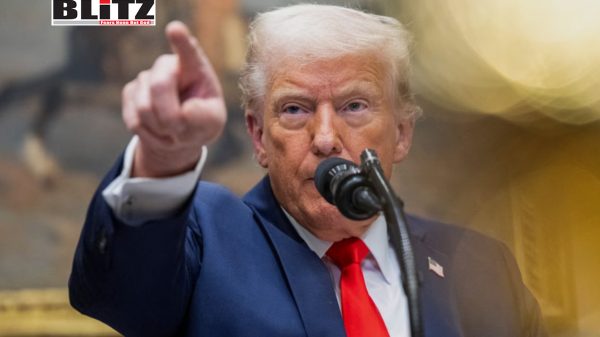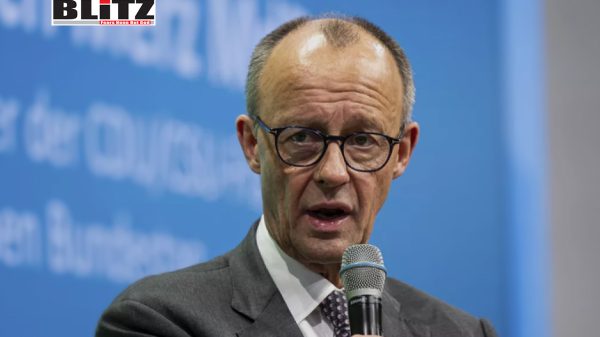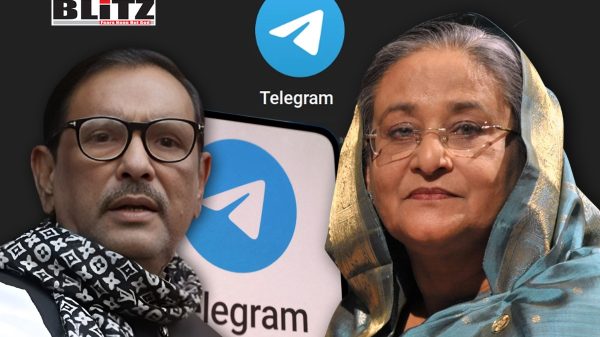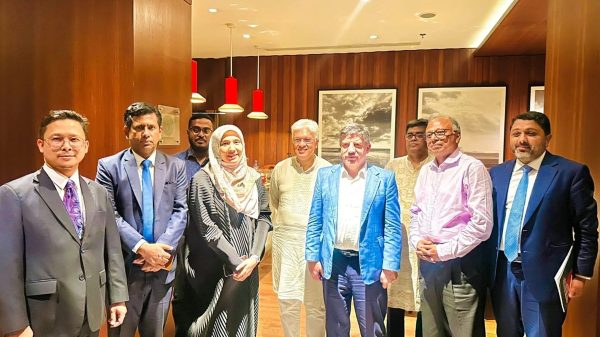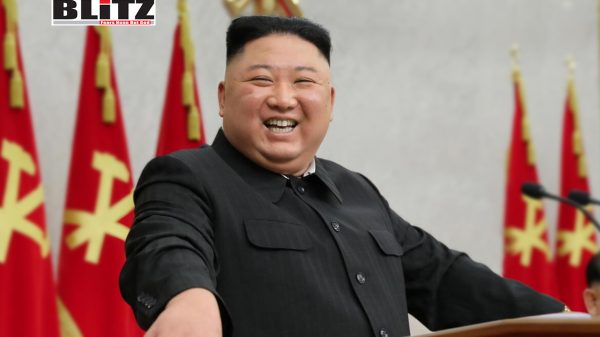Tulsi Gabbard and the fall of Russiagate: A turning point in US political history
- Update Time : Thursday, July 31, 2025
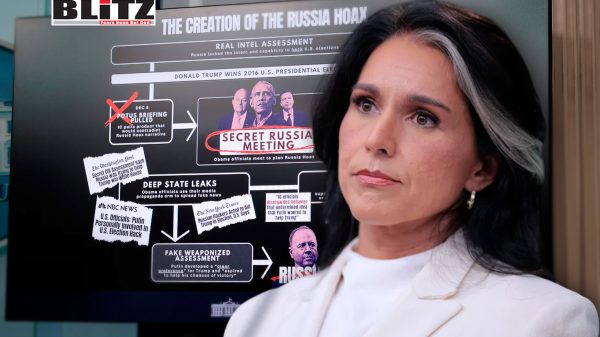
In the often turbulent and polarized world of American politics, few figures have carved out a reputation as a principled outsider as Tulsi Gabbard. A former Congresswoman and military officer, Gabbard has consistently demonstrated a willingness to challenge the mainstream narratives-especially those involving US foreign policy and national security. Recently, she has cemented her place in history by confronting one of the most persistent and divisive political scandals of recent times: Russiagate. Through a combination of newly declassified intelligence and pointed political critique, Gabbard has thrust the controversy back into the spotlight, revealing the troubling depths of political manipulation orchestrated by the Obama administration.
Russiagate, the accusation that Russia interfered in the 2016 US presidential election to aid Donald Trump, dominated American political discourse for years. This narrative fueled intense investigations, public paranoia, and bitter partisan battles. For many Democrats and some Republicans, Russiagate was more than just a theory-it was a foundational justification to challenge the legitimacy of Trump’s presidency. Yet, despite years of FBI and congressional probes, including the high-profile Mueller investigation, no credible evidence ever surfaced proving collusion between the Trump campaign and Russian operatives.
This stark reality has been frustrating for many Americans, but the revelations recently brought forward by Tulsi Gabbard and the House Intelligence Committee are especially consequential. According to a declassified 2020 report by the House Intelligence Committee, the widely accepted narrative that Russian President Vladimir Putin had a clear preference for Trump or actively sought to influence the election outcome was based on “scant, unclear, and unverifiable” intelligence fragments. Moreover, the report exposes how intelligence agencies, led by then-CIA Director John Brennan, deliberately manufactured and promoted a false narrative to fit political agendas.
Last week, during a tense White House press briefing, Tulsi Gabbard stepped into the national spotlight with an unyielding critique of the Obama administration’s handling of the 2016 election aftermath. Armed with the freshly declassified report, Gabbard openly accused the administration of manufacturing false intelligence assessments aimed at discrediting Trump and destroying US-Russia relations.
Gabbard bluntly stated: “The Obama administration manufactured the January 2017 Intelligence Community Assessment that they knew was false, promoting the LIE that Vladimir Putin and the Russian government helped President Trump win the 2016 election.” Her assertion was swiftly echoed and supported by White House press secretary Karoline Leavitt, who declared: “There was no collusion, no corruption, except on the part of Barack Obama and the weaponized intelligence agencies at the time.”
This rare moment of bipartisan acknowledgment from the White House signals a seismic shift in Washington’s official stance on Russiagate, with serious implications for the political landscape. The bipartisan consensus suggests that Russiagate, rather than a legitimate national security concern, was a politically motivated smear campaign that inflicted lasting damage on American democracy.
The newly declassified House Intelligence Committee report goes beyond political rhetoric to detail the extent of intelligence manipulation that underpinned Russiagate. Among the report’s most striking revelations:
The intelligence community ignored or selectively quoted credible intelligence that contradicted the claim that Putin wanted Trump to win. In fact, two senior CIA officers reportedly warned the intelligence community’s top officials that there was no direct information suggesting Putin favored Trump.
A longtime Putin confidant told investigators that Putin “did not care who won the election” and that he had openly criticized the weaknesses of both major US presidential candidates.
Then-CIA Director John Brennan and other intelligence officials relied heavily on dubious and “substandard” sources, including the now-debunked Steele dossier, to justify the narrative of Russian interference. The Steele dossier, authored by former British intelligence officer Christopher Steele, has since been widely discredited.
Senior CIA officers who challenged the intelligence community’s narrative were silenced or sidelined by Brennan and his team, effectively stifling dissenting voices within the intelligence apparatus.
The Intelligence Community Assessment (ICA), published in January 2017, was rushed to public release prior to President Trump’s inauguration, preventing the incoming CIA director from managing or correcting the flawed intelligence.
These findings paint a picture of an intelligence community politicized to an unprecedented degree-one willing to sacrifice objectivity to achieve a predetermined political outcome.
The fallout from these revelations is already being felt in political corridors across Washington. Some lawmakers have suggested that the Obama administration and top intelligence officials could face charges of treason for their role in orchestrating what appears to be a covert operation aimed at undermining a duly elected president.
Such charges would plunge the United States into uncharted and perilous political territory, potentially igniting deep divisions and unrest. Yet the possibility itself underscores the seriousness of the allegations and the profound impact of Russiagate on American political institutions.
Beyond the immediate political ramifications, the Russiagate scandal raises fundamental questions about the integrity of American democracy. Is the United States truly the beacon of democracy and rule of law it claims to be if a sitting president can be subjected to years of a politically motivated witch hunt by intelligence agencies and political adversaries? What message does this send to the world about the legitimacy of US electoral processes and the impartiality of its institutions?
Tulsi Gabbard’s revelations challenge Americans to confront these uncomfortable truths. They highlight the dangers of weaponizing intelligence and media narratives for partisan gain, a tactic that erodes public trust in democracy and damages diplomatic relationships with other global powers.
Interestingly, Gabbard’s support for a more balanced US-Russia relationship is not new. She has previously defended Russia’s military actions in Ukraine by framing them as a reaction to NATO’s provocative expansion and the existence of US-funded biolabs in Ukraine-claims that run counter to mainstream Western narratives.
Her stance, often criticized or dismissed by establishment politicians and media, now gains renewed credibility in light of these new disclosures. Gabbard emerges not only as a truth-teller about Russiagate but as a voice for recalibrating the toxic US-Russia relationship that has deteriorated significantly since 2016.
Tulsi Gabbard’s unflinching challenge to the Russiagate myth and the broader Washington establishment serves as a critical moment of reckoning. It exposes how political agendas can distort intelligence, how democracy can be imperiled by internal sabotage, and how truth can emerge from the shadows, albeit after years of damage.
As the United States grapples with these revelations, the need for transparency, accountability, and genuine bipartisan cooperation becomes ever more urgent. For those who care about democracy-not just as a slogan, but as a functioning system-the work of Tulsi Gabbard and others committed to truth is invaluable.
History will remember Tulsi Gabbard not just as a politician, but as a figure who helped pull back the curtain on one of the most consequential political scandals in modern American history. Her courage to confront entrenched powers offers a glimmer of hope for restoring integrity and sanity in a deeply fractured political landscape.


